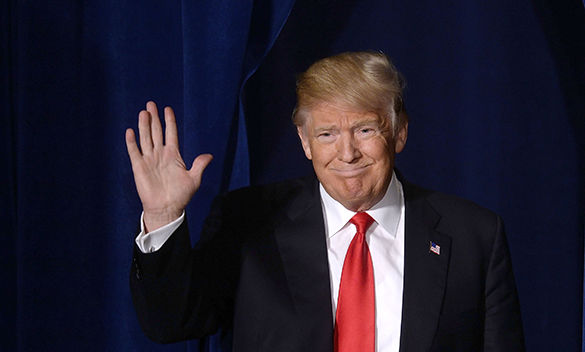Justices asked to rule in Trump casino case

May 30, 2016
The Supreme Court is being asked to take up a bankruptcy dispute involving the Trump Taj Mahal in Atlantic City and to decide whether to restore the health and pension benefits of more than 1,000 casino workers.
At issue is a conflict between labor laws that call for preserving collective bargaining agreements and bankruptcy laws that allow a judge to reorganize a business to keep it in operation.
“This is about how a bankruptcy was used to transfer value from working people to the super-rich,” said Richard G. McCracken, general counsel for Unite Here, the hotel and casino workers’ union that appealed to the Supreme Court.
Advertisement
Billionaire Carl Icahn stepped in to buy the New Jersey casino — founded by Donald Trump — after it filed for bankruptcy in 2014.
As the 3rd Circuit Court of Appeals said in January, Trump’s “plan of reorganization was contingent on the rejection of the collective bargaining agreement,” also known as the CBA, with the union. Icahn promised a “capital infusion of $100 million” to keep the casino in operation, but “only if the CBA and tax relief contingencies are achieved.”
With that understanding, the Philadelphia-based appeals court upheld a bankruptcy judge’s order that canceled the health insurance and pension contributions called for in the union’s contract.
“It is preferable to preserve jobs through a rejection of a CBA, as opposed to losing the positions permanently,” wrote Judge Jane Roth.
The union is urging the Supreme Court to review and reverse that ruling, arguing that the labor laws call for preserving collective bargaining agreements, even if they expire during a bankruptcy. The National Labor Relations Board agreed and filed a brief in the support of the casino workers union when the case was before the 3rd Circuit.
The appeal petition in Unite Here Local 54 vs. Trump Entertainment Resorts argues that the bankruptcy judge wrongly allowed the casino management to bypass the union.
“On Sept. 9, 2014, Trump Entertainment Resorts, Inc., and its affiliated debtors including Trump filed a voluntary petition under Chapter 11 of the Bankruptcy Code,” the union told the justices. On Sept. 26, Trump filed a motion with the bankruptcy judge “seeking to reject the collective bargaining agreement and implement different terms proposed by Trump.”
Advertisement*
Union officials and Trump’s representatives met twice to discuss a new contract, but were unable to agree. The bankruptcy judge then granted Trump’s motion on Oct. 17, 2014.
“Trump immediately implemented the changes in terms and conditions of employment that the Union had rejected. It ceased making contributions to the pension, health and welfare, and severance funds that provided benefits to Trump’s employees. It expanded its own authority to consolidate positions, assign work and subcontract, which resulted in layoffs and loss of pay,” the union said.
In February, shortly after the appeals court ruling, the casino emerged from bankruptcy. While Trump’s name remains on the property, Icahn is the new owner.
The justices met Thursday to vote on dozens of pending appeals, including the union’s case against Trump Entertainment Resorts. The court will issue orders on Tuesday morning and could announce whether it will hear the case.
(c)2016 Tribune Co.
Visit Tribune Co. at www.latimes.com
Distributed by Tribune Content Agency, LLC.
Advertisement








